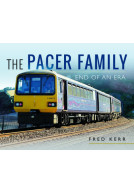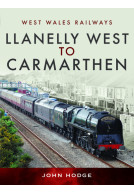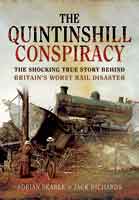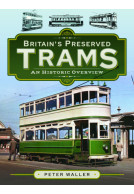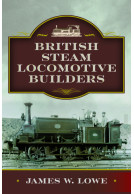The Voyager Family (ePub)
Imprint: Pen & Sword Transport
File Size: 42.5 MB (.epub)
Pages: 128
Illustrations: 214
ISBN: 9781526731454
Published: 6th June 2018
| Other formats available - Buy the Hardback and get the eBook for free! | Price |
|---|---|
| The Voyager Family Hardback Add to Basket | £25.00 |
When British Railways was privatised in 1994, much interest was generated by the franchise arrangements including the new operators and the specific requirements of the franchise agreements. The West Coast Main Line (WCML) was a major operation offered as two franchises covering Inter City and Cross-Country services, and both were initially won by Virgin Trains (albeit operated by separate companies within the Virgin group).
The Inter City franchise was awarded to Virgin Trains West Coast (VTWC) and the Cross-Country franchise was awarded to Virgin Trains Cross Country (VTCC), but both franchise agreements were awarded on condition that the existing rolling stock was replaced. In the case of VTCC this meant replacing the mix of ageing locomotive-hauled train sets by a new fleet of diesel multiple unit train sets, leading to two designs being ordered in 1998 with deliveries beginning in 2001. The Class 220 ‘Voyager’ was a 4-car train set specified for VTCC’s Inter City services, whilst the Class 221 ‘Super Voyager’ was a 5-car train set with tilting mechanism for Cross Country services; the ‘Super Voyager’ order also included four 4-car train sets for operation on Euston – Holyhead services.
The new fleets quickly provided a standard fleet, but the Virgin Trains’ franchises soon became involved in political issues that affected both the running of the companies and the operation of the train sets, leading to the Cross Country franchise changing operators in 2006. At the same time, political interference in franchise agreements led to other franchisees being forced to make decisions regarding fleet renewals and train operation that led to variations to the original ‘Voyager’ designs being introduced to service.
The Voyager Family covers the earliest days of operation whilst reflecting the many changes that have taken place, both in the franchisees who have operated them and in their spheres of operation. Despite the many criticisms, the train sets continue to provide an extensive range of services, all of which are celebrated in this book.
If your interest is in visual depictions of these units, backed up with basic technical and operational information, perhaps as a railway modeller of the contemporary scene, then this is the book for you. Colour reproduction is excellent, the images are sharp, and the range of franchise liveries covered is extensive.
Stephenson Locomotive Society
This is a high quality book and highly recommended.
The author has managed to convey a very astute view of the history of the Voyager train set family, and the environment in which they have been expected to function reliably, with crisp concise text. The full colour photographs provide an eloquent essay that shows not only the trains of the franchisees, but also the backgrounds against which the trains run.
Firetrench
About Fred Kerr
Fred Kerr is a photographer whose lifelong interest in railways began in Edinburgh during the early 1950s and has continued throughout his life since. His family move to Northamptonshire in 1956 introduced him to the Midland Main Line where the transition from steam to diesel traction became important as Derby Works reflected the change with new locomotives being tested and introduced to service. His early ventures into photography began in 1961 but became established during his University years in the early 1970s. Taking early retirement in 1994 he has spent time working for Colin Garratt, a muse whose inspiration provided opportunities to photograph railway scenes that have proved to be historic as the railway undergoes changes in both its structures and operations.











